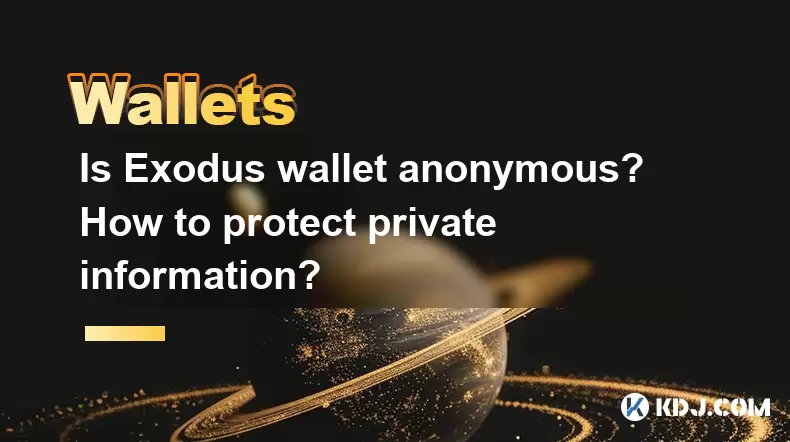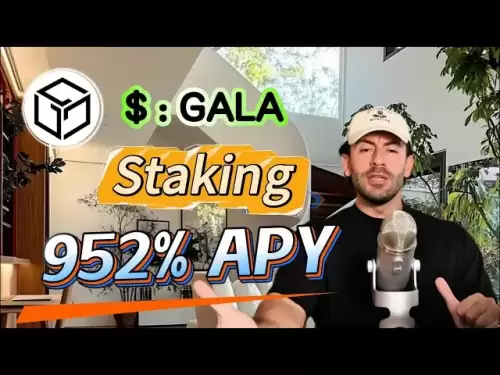-
 Bitcoin
Bitcoin $114500
-0.31% -
 Ethereum
Ethereum $3648
1.11% -
 XRP
XRP $3.033
-0.27% -
 Tether USDt
Tether USDt $0.9999
-0.01% -
 BNB
BNB $758.5
-0.32% -
 Solana
Solana $167.5
1.48% -
 USDC
USDC $0.9998
-0.02% -
 TRON
TRON $0.3331
0.74% -
 Dogecoin
Dogecoin $0.2039
0.25% -
 Cardano
Cardano $0.7419
-0.46% -
 Hyperliquid
Hyperliquid $39.21
2.66% -
 Stellar
Stellar $0.4049
-1.95% -
 Sui
Sui $3.483
-0.56% -
 Bitcoin Cash
Bitcoin Cash $570.8
2.89% -
 Chainlink
Chainlink $16.67
-0.57% -
 Hedera
Hedera $0.2470
-1.57% -
 Ethena USDe
Ethena USDe $1.001
0.00% -
 Avalanche
Avalanche $22.36
1.52% -
 Litecoin
Litecoin $123.4
4.35% -
 UNUS SED LEO
UNUS SED LEO $8.989
0.09% -
 Toncoin
Toncoin $3.324
-2.40% -
 Shiba Inu
Shiba Inu $0.00001219
-1.30% -
 Uniswap
Uniswap $9.811
2.54% -
 Polkadot
Polkadot $3.662
-0.07% -
 Monero
Monero $295.5
-3.85% -
 Dai
Dai $1.000
0.01% -
 Bitget Token
Bitget Token $4.345
0.24% -
 Cronos
Cronos $0.1380
0.95% -
 Pepe
Pepe $0.00001044
-1.14% -
 Ethena
Ethena $0.5981
-4.24%
Is Exodus wallet anonymous? How to protect private information?
Exodus wallet isn't anonymous by default, but you can enhance privacy by using strong passwords, 2FA, VPNs, and privacy-focused cryptocurrencies like Monero and Zcash.
May 11, 2025 at 12:42 pm

Is Exodus Wallet Anonymous? How to Protect Private Information?
Exodus wallet is a popular choice among cryptocurrency enthusiasts due to its user-friendly interface and support for multiple cryptocurrencies. However, one of the key concerns users have is the level of anonymity it offers and how they can protect their private information. In this article, we will delve into the anonymity features of Exodus wallet and provide detailed steps on how to safeguard your private information.
Understanding Exodus Wallet's Anonymity
Exodus wallet is designed to be user-friendly and secure, but it is not inherently anonymous. When you create an Exodus wallet, you are not required to provide any personal information, which is a positive aspect for those seeking privacy. However, transactions made through Exodus are recorded on the public blockchain, which means they can be traced back to your wallet address.
To enhance your anonymity, Exodus wallet does not collect personal data such as your name, email address, or phone number. This means that the company itself does not have access to your personal information, which reduces the risk of data breaches on their end. However, it is important to understand that the level of anonymity you achieve depends on how you use the wallet and the measures you take to protect your privacy.
How to Protect Private Information on Exodus Wallet
Protecting your private information on Exodus wallet involves several steps that you can take to enhance your security and privacy. Below are detailed instructions on how to safeguard your private information.
Use a Strong Password
One of the first steps to protecting your private information is to use a strong and unique password for your Exodus wallet. A strong password should be at least 12 characters long and include a mix of uppercase and lowercase letters, numbers, and special characters.
- Open the Exodus wallet application on your device.
- Navigate to the settings menu by clicking on the gear icon in the top right corner.
- Select "Security" from the settings menu.
- Click on "Change Password" and enter your current password.
- Enter your new strong password and confirm it.
- Click "Save" to update your password.
Enable Two-Factor Authentication (2FA)
Enabling two-factor authentication adds an extra layer of security to your Exodus wallet. 2FA requires a secondary form of verification, usually a code sent to your mobile device, which makes it much harder for unauthorized users to access your wallet.
- Open the Exodus wallet application on your device.
- Navigate to the settings menu by clicking on the gear icon in the top right corner.
- Select "Security" from the settings menu.
- Click on "Enable 2FA" and follow the prompts to set it up.
- Enter the code sent to your mobile device to complete the setup process.
Use a VPN
Using a Virtual Private Network (VPN) can help mask your IP address and enhance your privacy when using Exodus wallet. A VPN encrypts your internet connection and routes it through a server in a different location, making it harder for others to track your online activities.
- Choose a reputable VPN provider and subscribe to their service.
- Download and install the VPN application on your device.
- Launch the VPN application and connect to a server of your choice.
- Open the Exodus wallet application while the VPN is active to enhance your privacy.
Keep Your Software Updated
Keeping your Exodus wallet software up to date is crucial for protecting your private information. Software updates often include security patches that address vulnerabilities that could be exploited by attackers.
- Open the Exodus wallet application on your device.
- Navigate to the settings menu by clicking on the gear icon in the top right corner.
- Select "About" from the settings menu.
- Check for updates and follow the prompts to install any available updates.
Use Cold Storage for Large Amounts
If you are storing large amounts of cryptocurrency, consider using cold storage solutions such as hardware wallets. Cold storage keeps your private keys offline, which significantly reduces the risk of them being compromised.
- Purchase a reputable hardware wallet such as Ledger or Trezor.
- Set up the hardware wallet according to the manufacturer's instructions.
- Transfer your cryptocurrency from your Exodus wallet to the hardware wallet for secure storage.
- Use the hardware wallet to sign transactions, keeping your private keys offline.
Additional Tips for Enhancing Anonymity
In addition to the steps mentioned above, there are several other measures you can take to enhance your anonymity when using Exodus wallet.
Avoid Linking Your Wallet to Personal Information
One of the simplest ways to maintain anonymity is to avoid linking your Exodus wallet to any personal information. This includes not using the same email address or phone number for your wallet that you use for other services.
Use Privacy-Focused Cryptocurrencies
Some cryptocurrencies are designed with privacy in mind, such as Monero (XMR) and Zcash (ZEC). These cryptocurrencies use advanced cryptographic techniques to obscure transaction details, making it harder for others to trace your activities.
- Open the Exodus wallet application on your device.
- Navigate to the "Assets" section and search for Monero or Zcash.
- Add the privacy-focused cryptocurrency to your wallet.
- Use these cryptocurrencies for transactions that require a higher level of privacy.
Be Cautious with Transaction Amounts
To maintain anonymity, avoid sending or receiving large amounts of cryptocurrency in a single transaction. Large transactions can attract attention and make it easier for others to identify you.
- Break down large transactions into smaller amounts.
- Use different wallet addresses for different transactions to further obscure your activities.
Frequently Asked Questions
Q: Can I use Exodus wallet on multiple devices?
A: Yes, you can use Exodus wallet on multiple devices. However, you should ensure that you have the same strong password and 2FA enabled on all devices to maintain security. Additionally, always download the wallet from the official website to avoid downloading malicious software.
Q: Is it safe to store large amounts of cryptocurrency in Exodus wallet?
A: While Exodus wallet is secure, it is generally recommended to use cold storage solutions like hardware wallets for storing large amounts of cryptocurrency. This adds an extra layer of security by keeping your private keys offline.
Q: Can I recover my Exodus wallet if I lose my password?
A: Unfortunately, if you lose your password, you will not be able to recover your Exodus wallet. It is crucial to back up your 12-word recovery phrase and store it in a secure location. This phrase can be used to restore your wallet on a new device.
Q: Does Exodus wallet support all cryptocurrencies?
A: Exodus wallet supports a wide range of cryptocurrencies, but not all of them. You can check the list of supported assets on the official Exodus website. If a cryptocurrency you wish to use is not supported, you may need to use a different wallet that supports it.
Disclaimer:info@kdj.com
The information provided is not trading advice. kdj.com does not assume any responsibility for any investments made based on the information provided in this article. Cryptocurrencies are highly volatile and it is highly recommended that you invest with caution after thorough research!
If you believe that the content used on this website infringes your copyright, please contact us immediately (info@kdj.com) and we will delete it promptly.
- Uniswap Valuation Under the Microscope: Bitwise CIO's Perspective
- 2025-08-05 23:10:12
- Coinbase's $2 Billion Convertible Notes: A Bold Move or Risky Bet?
- 2025-08-05 23:10:12
- Inveniam, MANTRA, and Real-World Assets: Forging a New DeFi Frontier
- 2025-08-05 22:30:12
- Cyprus Investor's $448K Crypto Loss: An Email Hack Wake-Up Call for Crypto Exchanges
- 2025-08-05 22:30:12
- Solana Memecoin Mania: Trader Profit Secrets Revealed!
- 2025-08-05 20:30:13
- POL Price Rebound: Will Consolidation Lead to a Breakout?
- 2025-08-05 20:30:13
Related knowledge

How to add TRC20 token to Trust Wallet?
Aug 04,2025 at 11:35am
Understanding TRC20 and Trust Wallet CompatibilityTrust Wallet is a widely used cryptocurrency wallet that supports multiple blockchain networks, incl...

What is a watch-only wallet in Trust Wallet?
Aug 02,2025 at 03:36am
Understanding the Concept of a Watch-Only WalletA watch-only wallet in Trust Wallet allows users to monitor a cryptocurrency address without having ac...

Why can't I connect my Trust Wallet to a DApp?
Aug 04,2025 at 12:00pm
Understanding DApp Connectivity and Trust WalletConnecting your Trust Wallet to a decentralized application (DApp) is a common process in the cryptocu...

How to fix a stuck pending transaction in Trust Wallet?
Aug 03,2025 at 06:14am
Understanding Why Transactions Get Stuck in Trust WalletWhen using Trust Wallet, users may occasionally encounter a pending transaction that appears t...

What is a multi-coin wallet in Trust Wallet?
Aug 03,2025 at 04:43am
Understanding Multi-Coin Wallets in Trust WalletA multi-coin wallet in Trust Wallet refers to a digital wallet that supports multiple cryptocurrencies...

How to switch between networks in Trust Wallet?
Aug 02,2025 at 12:36pm
Understanding Network Switching in Trust WalletSwitching between networks in Trust Wallet allows users to manage assets across different blockchains s...

How to add TRC20 token to Trust Wallet?
Aug 04,2025 at 11:35am
Understanding TRC20 and Trust Wallet CompatibilityTrust Wallet is a widely used cryptocurrency wallet that supports multiple blockchain networks, incl...

What is a watch-only wallet in Trust Wallet?
Aug 02,2025 at 03:36am
Understanding the Concept of a Watch-Only WalletA watch-only wallet in Trust Wallet allows users to monitor a cryptocurrency address without having ac...

Why can't I connect my Trust Wallet to a DApp?
Aug 04,2025 at 12:00pm
Understanding DApp Connectivity and Trust WalletConnecting your Trust Wallet to a decentralized application (DApp) is a common process in the cryptocu...

How to fix a stuck pending transaction in Trust Wallet?
Aug 03,2025 at 06:14am
Understanding Why Transactions Get Stuck in Trust WalletWhen using Trust Wallet, users may occasionally encounter a pending transaction that appears t...

What is a multi-coin wallet in Trust Wallet?
Aug 03,2025 at 04:43am
Understanding Multi-Coin Wallets in Trust WalletA multi-coin wallet in Trust Wallet refers to a digital wallet that supports multiple cryptocurrencies...

How to switch between networks in Trust Wallet?
Aug 02,2025 at 12:36pm
Understanding Network Switching in Trust WalletSwitching between networks in Trust Wallet allows users to manage assets across different blockchains s...
See all articles

























































































